
China’s Sloppy Trade Policy Leaves Border Market and Businesses Deserted
During his first visit to Nepal three and a half years ago, Chinese President Xi Jinping expressed his intention to prioritize the development of a comprehensive communication network between China and Nepal. This statement generated enthusiasm among Nepali businessmen, who hoped for improved trade and economic opportunities.
However, the closure of all border crossings with China following the earthquake caused a crisis for not only major businessmen but also small shopkeepers near the border. The once vibrant markets adjacent to the Chinese border became deserted, leading to disappointment among the business community.
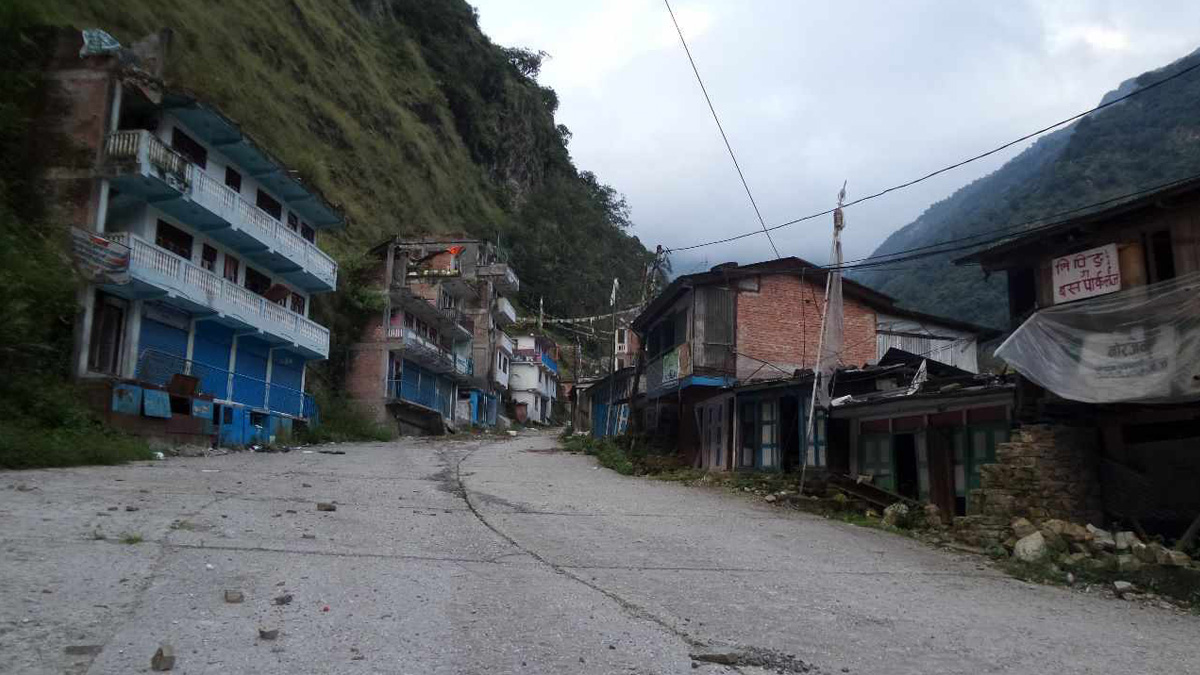
Nepal shares a 1,414 km long border with China, which includes six checkpoints: Rasuwagadhi in Rasuwa, Tatopani in Sindhupalchowk, Hilsa in Humla, Korla in Mustang, Kimathanka in Sankhuwasabha, and Olangchungola (Tiptala) in Taplejung. However, in reality, only Rasuwagadhi and Tatopani checkpoints are partially operational. For the past eight years, all border crossings with China have remained largely closed. This undeclared “blockade” by China, citing various reasons, has left importers and businessmen desperate.
Tatopani, which used to be a bustling market, has remained quiet for eight years. Hom Bahadur Basnet, the President of the Sindhupalchowk Chamber of Commerce and Industry, explained that the border was closed and traffic was halted by China after the earthquake. Prior to the earthquake, the checkpoint was operational, attracting domestic tourists who would come for hot baths, sightseeing, and purchasing inexpensive goods at the border market. However, all activities have come to a halt. Some professionals have left the area, while others have migrated to Kathmandu. Tatopani is known as a crucial transit point connecting cities in China.
Goods transported through Tatopani take 8-10 days to reach the Khasa border and an additional 3-4 days to reach Kathmandu. In contrast, bringing the same goods through Indian ports takes months. President Basnet highlighted that due to the non-operation of the checkpoint, around two thousand truck drivers, co-drivers, and thousands of businessmen in Tatopani have lost their jobs. The business community has repeatedly urged the government to fully operationalize the border crossing in both directions by submitting memorandums. Although it was announced that the checkpoint would operate smoothly from 1 May, the situation remains unchanged.
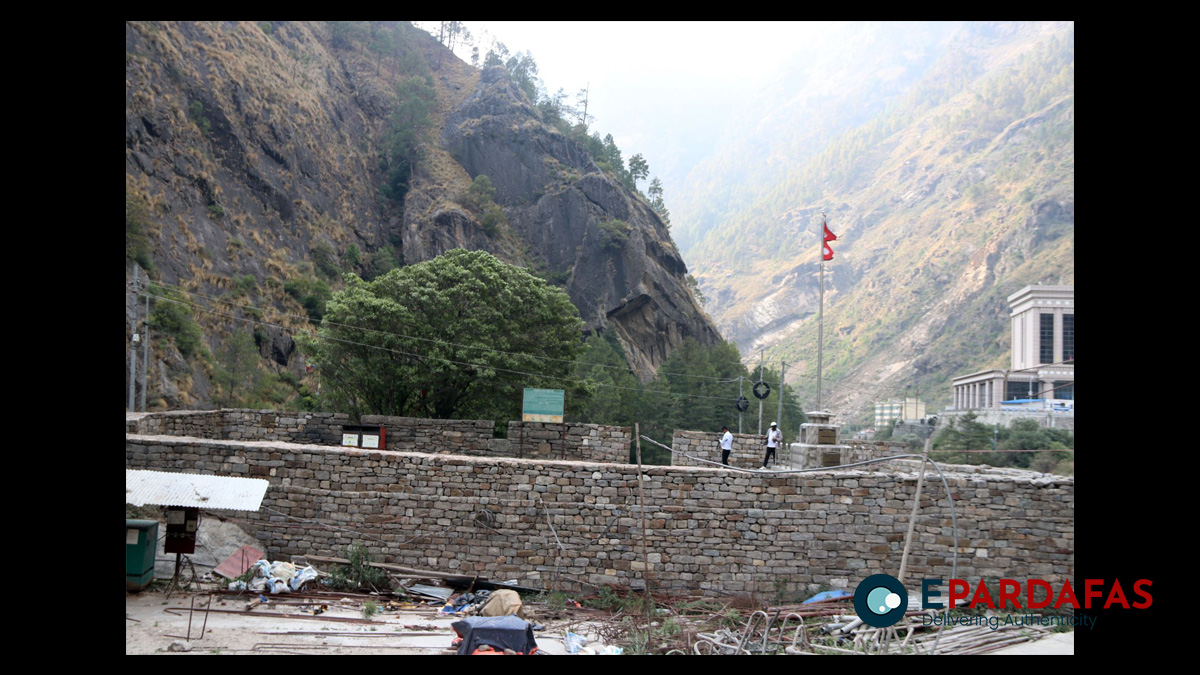
The situation at Rasuwagadi, another significant crossing point with China, mirrors that of Tatopani. Kesang Nirpu Tamang, President of the Rasuwa Industry and Commerce Association, expressed that disruptions at the checkpoint have adversely affected the market and businesses in Rasuwagadi. Cargo containers that were previously kept in Rasuwagadi have been redirected to Kerung, leading to a stagnant business environment.
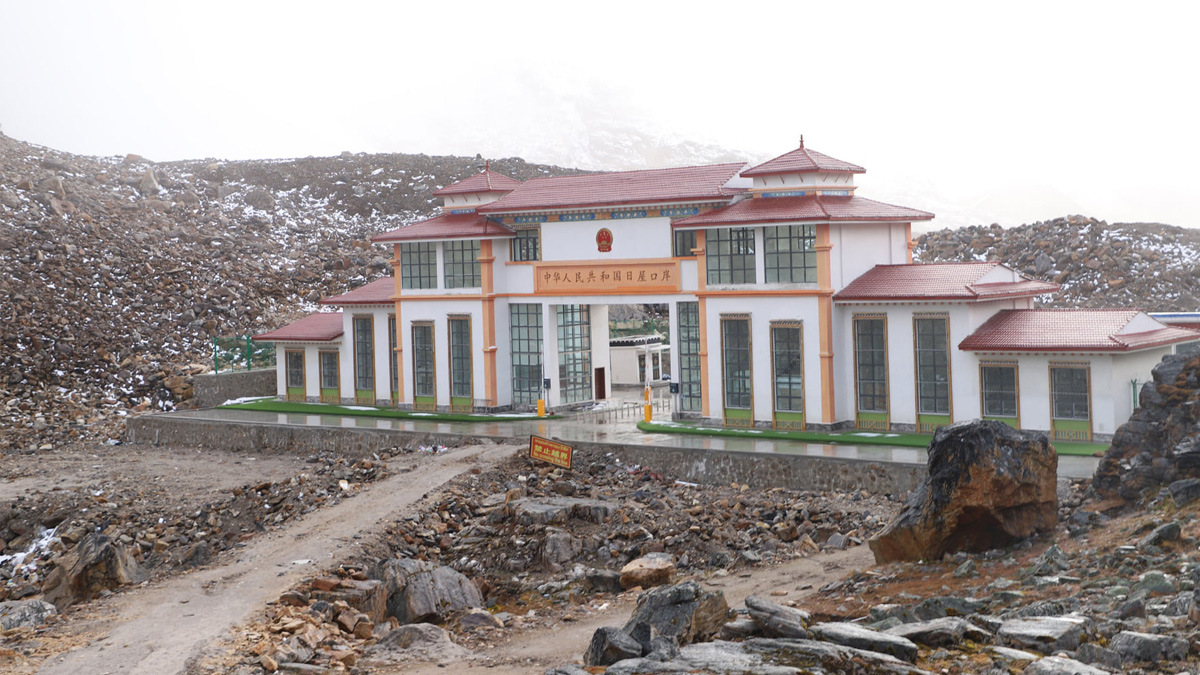
Tiptala in Taplejung is an important crossing point that significantly impacts the daily lives of locals. Despite the lack of a road connection, locals used to transport goods from Chauri to China and import essentials like salt, rice, pulses, oil, and clothes. Due to the border closure caused by Covid-19, locals have been forced to purchase goods from headquarters at inflated prices.
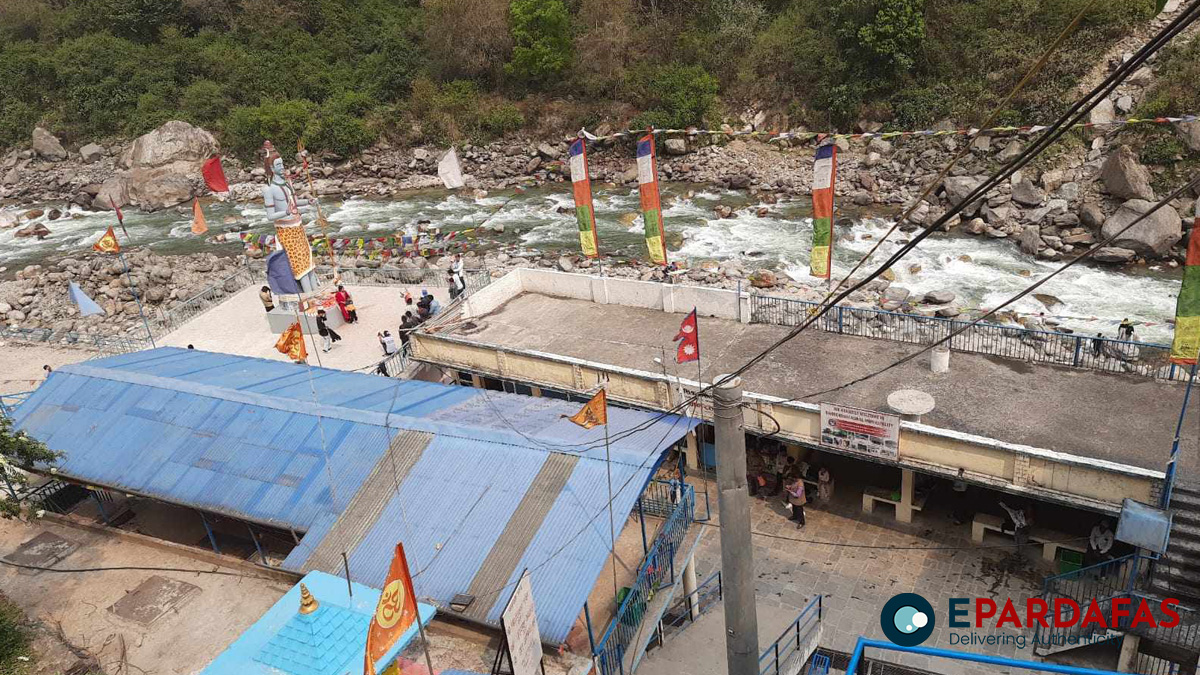
Narayan Thapa, President of the Taplejung Chamber of Commerce and Industry, stated that although there is not much commercial activity in Tiptala, locals are still distressed. Local representatives have been vocal in their appeals to the government to reopen the border crossing, but there has been no response thus far.
Humla’s Hilsa, another gateway to the west featuring local businesses, has recently resumed operations after a closure enforced due to the Covid-19 pandemic. This crossing holds particular significance as it was renowned for facilitating the Mansarovar Yatra, an important pilgrimage. Unfortunately, the number of tourists, including Indians embarking on the Mansarovar Yatra, has dwindled since the occurrence of the earthquake. Moreover, the arrival of tourists came to a complete halt when China closed the border in response to the pandemic.
Namgyal Lama, the president of the Humla Industry and Commerce Association, expressed concern regarding the multimillion investments made in hotels targeting these tourists. He emphasized that the closure of the crossing had far-reaching consequences, impacting both the local community and businesses. The nearby markets suffered a significant decline as local products could not be exported, and imports from China were also halted. Consequently, the standard of living became increasingly challenging for the residents.
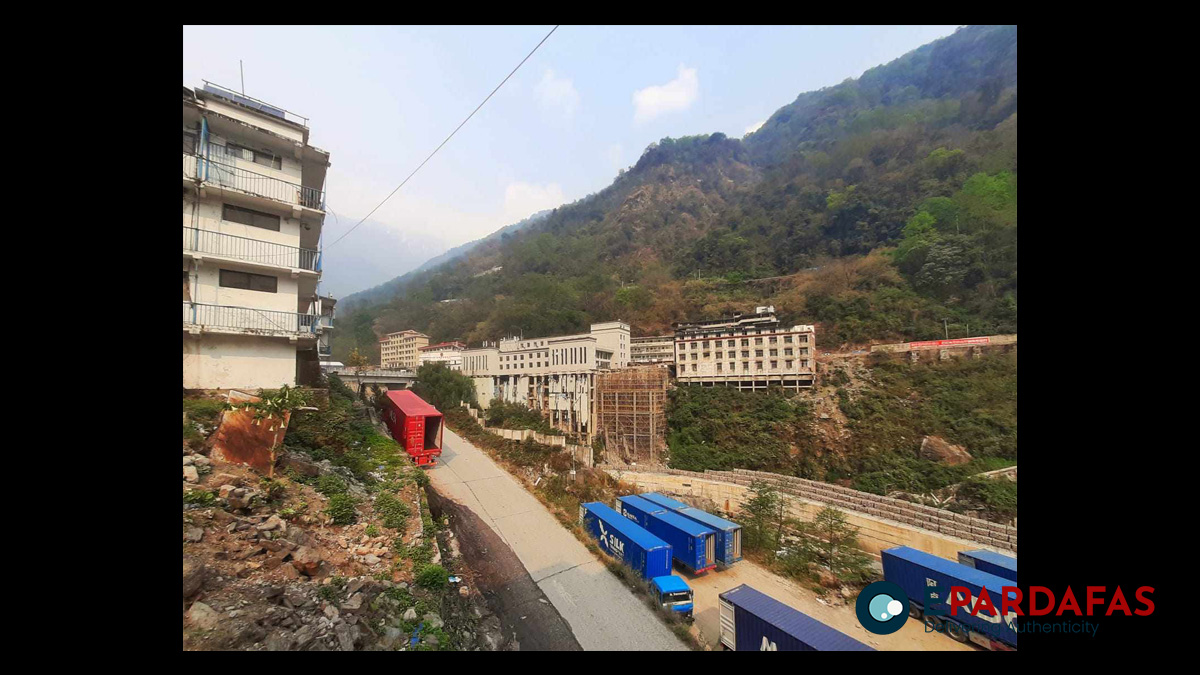
In light of these circumstances, Namgyal Lama urged the government to prioritize infrastructure development in order to enhance the professionalism of the region.
The North Tatopani border crossing, situated at a short distance from China, was initially reported to have been fully reopened on May 1, with the successful transportation of three containers carrying Nepalese goods. However, the reality is that the border crossing has only been partially opened for exports. Dayadand KC, an officer at the Tatopani Customs Office, lamented the situation, stating that exports have almost come to a standstill, and imports are sporadic as well. While the border crossing is technically open for export, it is only being done on a limited scale.
Previously, Nepalese people had a reliable source of income through the export of food grains, vegetables, and even medicinal herbs like Satuwa to Khasa. However, currently, Nepali traders can only bring materials such as apples, garlic, and clothes to the Miteri bridge from Khasa through the Silk Company, with a daily capacity of 6-7 containers. Vijay Sherpa, the manager of the Silk Company, revealed that despite traders’ demands during meetings with their Chinese counterparts to allow them further access, the response has been discouragingly negative.
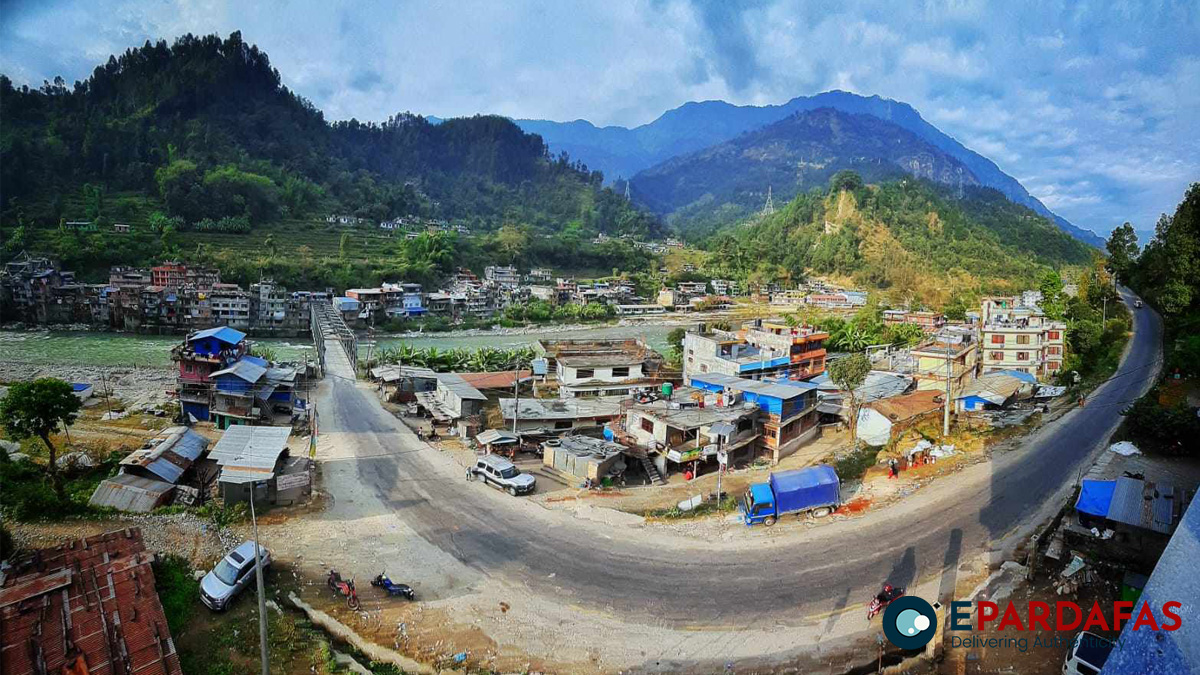
In the current financial year, the Tatopani Customs Office had set a target to collect revenue amounting to 4 billion 62 million rupees. However, as of now, they have managed to collect 2 billion 20 million rupees. It is worth noting that prior to the earthquake, Tatopani Customs facilitated annual business transactions worth one and a half billion rupees. Data from the customs department indicates that the government typically collects approximately six billion rupees in revenue each year.
Goods worth 14.84 billion, 84 lakh, 54 thousand have been imported through the Rasuwagadhi border until the end of the current fiscal year. From this, the customs has collected revenue of 3 billion, 73 crore, 67 lakh rupees. In the fiscal year 078/79, goods worth 30 billion, 99 crore, 63 lakh, 53 thousand were imported. From this, the customs collected revenue of 7 billion, 176 million, 90 thousand. The Customs Department has set an annual revenue collection target of 9.38 billion rupees for the Rasuwa Customs Office for the fiscal year 079/80.
Businessmen have reported that in the past, China’s imposition of a unilateral blockade resulted in a loss of millions of rupees. The Nepal Himalayan Cross Border Commerce Association has stated that goods bought from China are currently stuck in the border region, leading to substantial financial losses for the businessmen, particularly due to the deterioration of perishable items such as clothing. According to the businessmen, the recent issues occurring at the northern border have prompted the transportation of Chinese goods through ships via the Kolkata border in India.
Ramhari Karki, the senior vice president of the association, expressed that despite repeated appeals from businessmen to the government for facilitation of the Nepal-China border, their pleas have gone unheard.
“After the border issue arose, businessmen have adjusted their ordering patterns, reducing the quantity and placing orders earlier. Goods that used to be imported within a span of two weeks now take two to four months. Consequently, some businessmen have resorted to bringing goods through Kolkata, which has resulted in increased transportation costs,” stated Karki. “The primary demand of the businessmen is to restore the smooth operation of the northern border as it was before.”
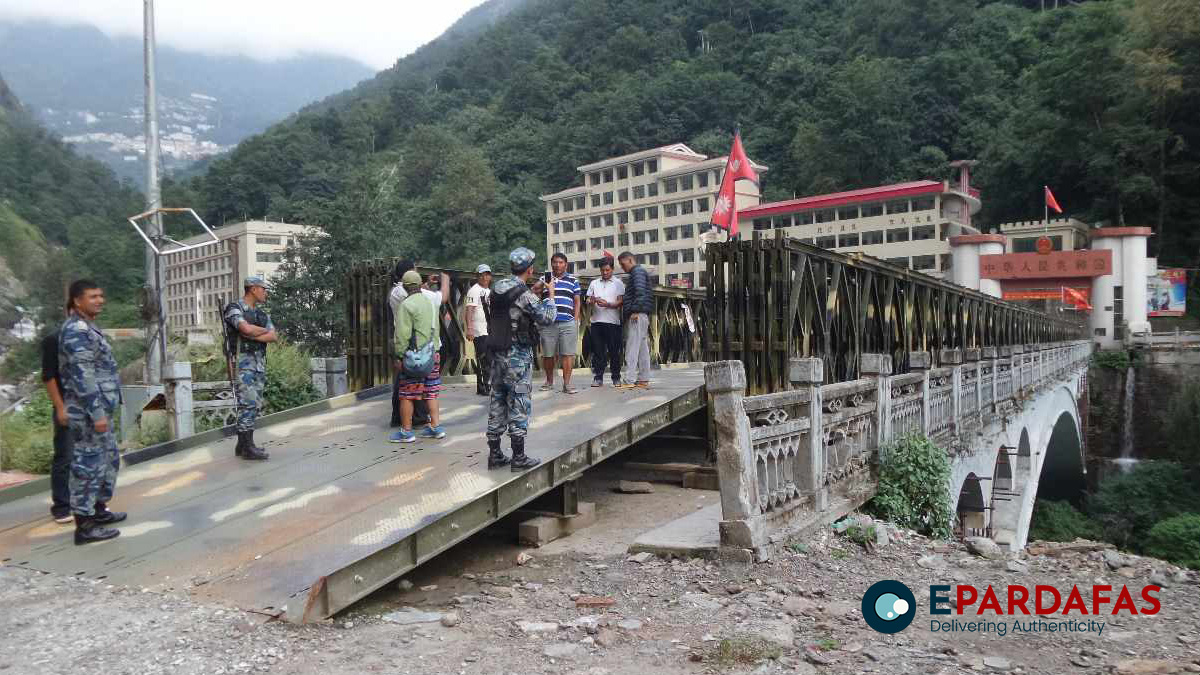


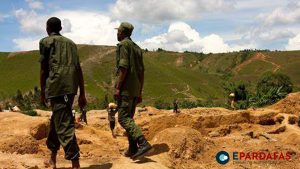
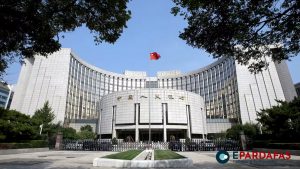
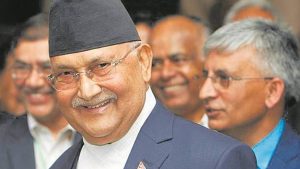







Comments